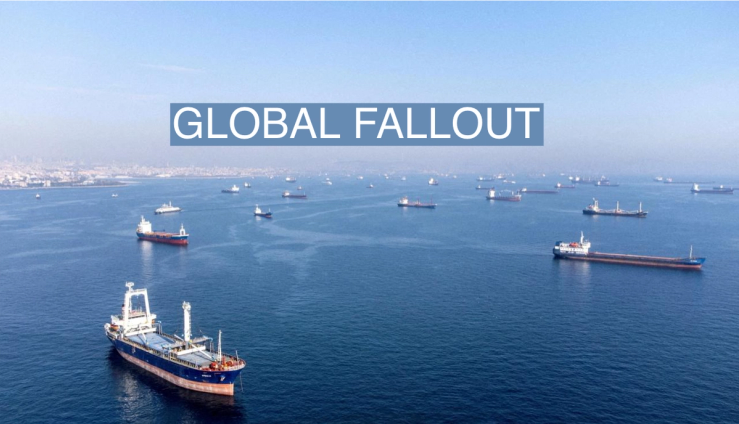The News
Russia has withdrawn from the Black Sea grain deal, a crucial agreement brokered by the U.N. and Turkey that allowed the safe export of grain from Ukraine following the Kremlin’s full-scale invasion of the country last year.
We’ve collected some insights you should read on what the withdrawal means for the war and global food prices.
In this article:
Insights
- Food prices are expected to spike following Russia’s decision, and it may imperil countries facing famines and food insecurity. The United Nations World Food Programme bought 80% of its grain from Ukraine in the first half of this year, and has been using it for donations to Afghanistan, Yemen, and East Africa. High food prices are driving “worrying” levels of hunger around the world, the U.N. has said. — The Globe and Mail
- This is the second time Russia has pulled out from the deal. In November, it withdrew for one day before rejoining, following pressure from Turkey. David Harland, director of the Geneva-based Centre for Humanitarian Dialogue, told the Financial Times that “Russia just felt that it wasn’t getting much in return, and might as well continue to squeeze Ukraine,” adding that while Turkey might still be able to persuade Russia to return to the deal, “it would have to lean hard.”
Know More
Kremlin spokesperson Dmitry Peskov told Russian state-run media outlet Tass that “the Black Sea agreement ceased to be valid today,” adding that “unfortunately, the part relating to Russia in this Black Sea agreement has not been implemented so far. Therefore, its effect is terminated.”
Earlier Monday, two explosions occurred at the Kerch Bridge, which connects Russia to the Crimean peninsula. Moscow has blamed Kyiv for the alleged attack, which killed two people.
Russia had previously threatened to quit the Black Sea agreement, saying that its demands for its own exports were not met.
The deal has moved 33 million metric tons of corn, wheat, and other grains out of the region. Ukraine and Russia are two of the largest exporters of grains in the world.
The View From Nigeria
Authorities declared a national emergency over food security in Nigeria last week, following a critical rise in inflation which has priced many out of basic necessities.
The controversial removal of a fuel subsidy was the source of a temporary jump in prices. Nigeria has consistently wrestled with food insecurity concerns and a UN report from earlier this year estimated that 25 million Nigerians would be unable to afford nutritious food every day. The food problem in Africa’s most populous country could worsen due to Russia’s refusal to renew the grain deal.
Dele Alake, President Bola Tinubu’s adviser, assured citizens that the government would create “a national commodity exchange board” to review and assess food prices and also vowed to maintain a strategic food reserve which will be used as a “price stabilization mechanism for critical grains and other food items.”


